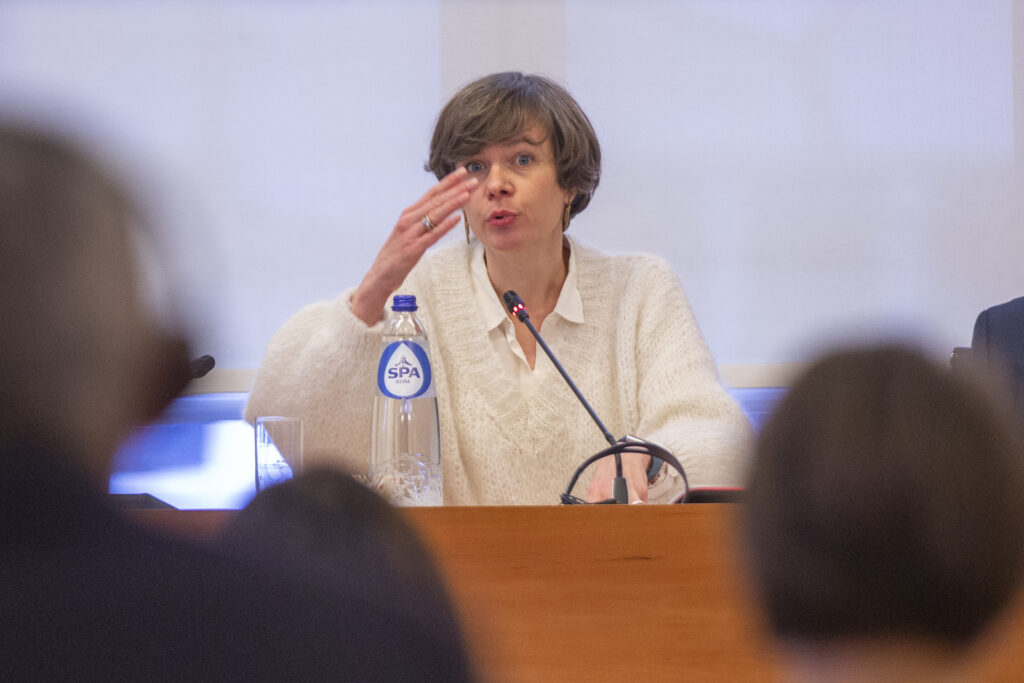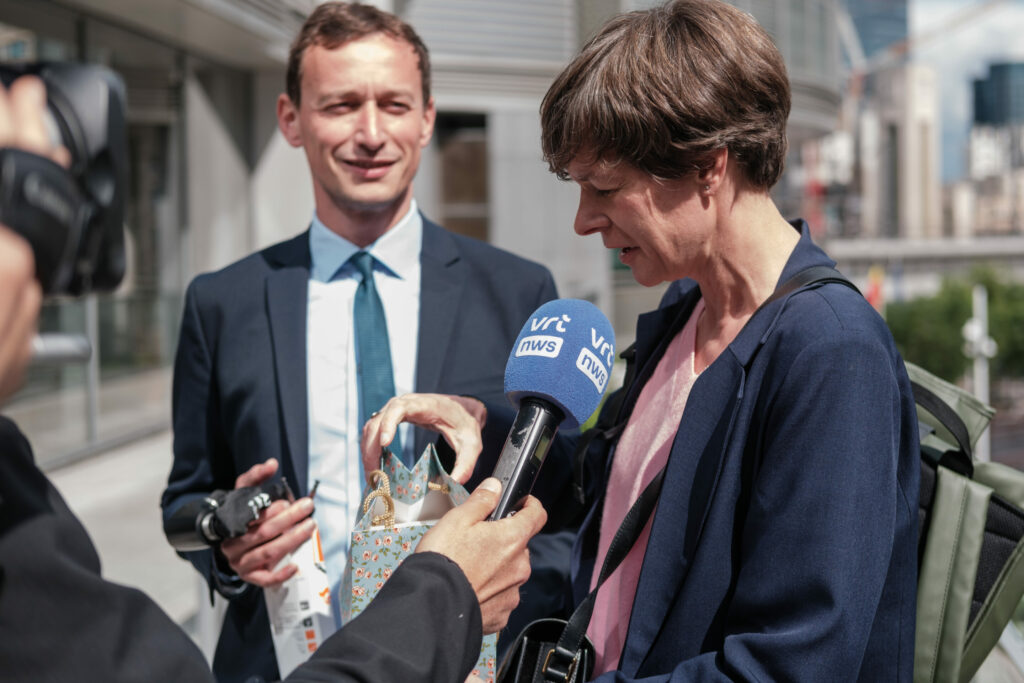As the negotiations to form the Dutch-speaking side of the Brussels Government are becoming increasingly protracted with no solution in sight, the Flemish nationalist N-VA party is willing to join the talks, leader Cieltje Van Achter said on Wednesday evening.
For the first time since the 9 June elections, Van Achter reacted to the difficult negotiations on the Dutch-speaking side, indicating that her party wants "to take its responsibility and be a partner for those who want to thoroughly reform and put the budget in order."
"The challenges we face are immense," said Van Achter. "The budget was already disastrous before the elections. If we continue at the same pace, another billion euros of debt would be added. So it is high time for reforms. Waiting until after the municipal elections would be criminal negligence."
Security and unemployment are also at the top of Van Achter's agenda. "The people of Brussels deserve a cleaner and safer city, and the number of unemployed people is at its highest level in seven years. Thorough reforms are needed." She did not reveal what kind of reforms she has in mind. "That is for the negotiating table, in case we are invited."
Possible power shift
Van Achter acknowledged that the cards are difficult on the Dutch-speaking side of the Brussels Government formation process, but stressed that there are "definitely options" to form a majority. She did not, however, go into detail about which parties she would like to join forces with. Previously, Christian Democrat CD&V said it would be "logical" to involve N-VA in the talks.
"We want to sit down with parties who want to tackle the budget, security problems and the lack of bilingualism in our capital in a serious way," she said. "And that is in the interest of the people of Brussels."
After the 9 June elections, the Brussels section of N-VA became the third-largest party on the Dutch-speaking side, behind Groen and Team Fouad Ahidar.
N-VA, liberals Open VLD and socialists Vooruit all won two seats (as did far-right Vlaams Belang), but N-VA gained the highest number of votes. This means that if the Flemish nationalists are indeed invited to the negotiating table, it would mean a shift in power relations between the parties.

N-VA's Cieltje Van Achter. Credit: Belga/Nicolas Maeterlinck
In a possible coalition with Groen, N-VA and liberals Open VLD, socialists Vooruit would then become the fourth – and therefore smallest – party in the majority. As a result, they would miss out on one of the three ministerial positions for Dutch speakers in the Brussels Government.
In the previously envisaged majority between Groen, Open VLD, Vooruit and Christian Democrats CD&V, the latter would be the smallest party and not have a ministerial position. However, this proved to be a problem for CD&V leader Benjamin Dalle, who refused to join the talks.
On the French-speaking side of things, liberals MR, socialists PS and centrists Les Engagés agreed to govern together and are now waiting for the Dutch speakers. Les Engagés already showed a willingness to work with N-VA as its Brussels leader Christophe De Beukelaer called it "the most logical course" on Francophone radio, saying the party has the "democratic legitimacy" to be part of the Regional Government.
The question remains whether Elke Van den Brandt (Groen), formator on the Dutch-speaking side, will indeed reach out to the Flemish nationalists. At the end of August, she met with Van Achter, as well as with Fouad Ahidar. Nothing was disclosed about the content of those meetings, except that a path with N-VA and Team Fouad Ahidar was "not yet ready."
Mobility 'bombshell'
For now, it is not yet clear if and when the next talks will take place, with Van den Brandt's office saying that "the breach of trust with the French-speaking majority parties must be restored before any further work can be done on the formation on the Dutch-speaking side."
Last weekend, the Francophone parties dropped what Van den Brandt called a "bombshell" on the formation talks, as they unilaterally proposed to postpone the stricter Low Emission Zone (LEZ) standards by two years. As Groen won the elections on the fact that their mobility policy focuses on cleaner air and fewer (polluting) cars, this is not something the party wants to compromise on.
Van den Brandt attempted to convince French-speaking formator David Leisterh (MR) to consult with her on the issue first but Leisterh did not accept the proposal. "The ball is in his court now," she said.

